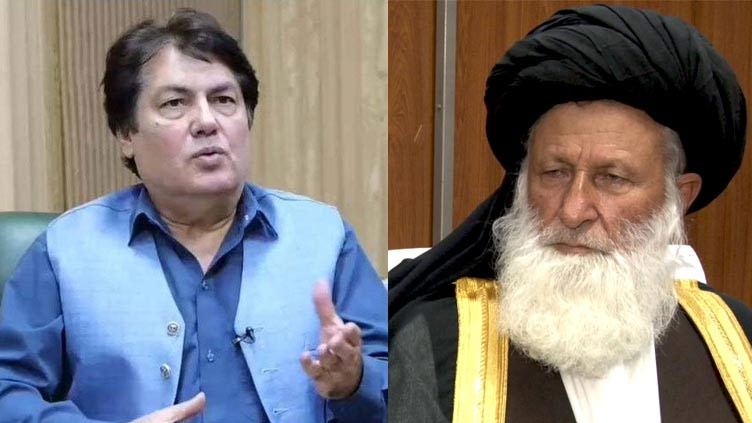Politico asserts that “powerful lobbies” respond angrily to any proposal to eliminate 17 ministries.
- Bilawal Bhutto interacts with students of SZABIST Islamabad.
- Politico explains salient features of PPP’s manifesto, economic plan.
- “Providing relief to weak segments, flood affectees top priority”
Chairman of the Pakistan Peoples Party (PPP), Bilawal Bhutto-Zardari, has attributed the nation’s long-standing issues on “powerful lobbies and bureaucracy,” calling his party’s manifesto solution for all the challenges ahead of the national elections.
Bilawal was discussing his party’s manifesto, “Chuno Nai Soch Ko (Choose new thinking)” with students on Monday at the Shaheed Zulfikar Ali Bhutto Institute of Science and Technology (SZABIST) campus in Islamabad.
The PPP chairman reaffirmed his commitment to help the poor after eliminating all subsidies to the upper strata of society, promising tough steps to break the hold of elites and powerful lobbyists.
With the election on February 8, all political parties are gearing up for battle, their platforms and pledges aimed at appeasing voters. In an attempt to persuade people to put them to power, PML-N and PPP are vying for the position of premier.
The PPP president added, “The economic crisis poses a serious risk to Pakistan. Inflation, poverty, unemployment, and climate change are key issues being faced by the country and needed to be addressed on a priority basis.”
He claimed to have created the party’s manifesto with the assistance of economists, guaranteeing the public an economic strategy to handle any crisis and instant relief for the general populace.
In our nation, the fertiliser industry, powerhouses, and elites receive annual subsidies of Rs. 1,500 billion. We’re going to stop giving the wealthy and powerful subsidies, and instead use the money to help the less fortunate.
“If elected to power, we will eliminate 17 ministries. If we make investments in the energy, communications, and agriculture sectors, the nation’s economy will undoubtedly see stability.
Bilawal acknowledged that “powerful lobbies create problems and a powerful reaction will come from the powerful sector after the abolishment of ministries” in order to further explain the anticipated challenges in carrying out his proposal.
The politician discussed his experiences as a foreign minister in the previous Pakistan Democratic Movement (PDM) administration. “I worked for the federal government for eighteen months, so I was familiar with the bureaucratic mindset in Islamabad.”
Bilawal attributed the country’s stagnant progress to the bureaucrats, saying, “They don’t want to work nor do they want anyone else to do something.”
He thought that the people who gave them 300 free energy units and other amenities, together with their programmes, would undoubtedly be supported by the country.
According to Bilawal, the nation was suffering greatly as a result of the politics of hatred and division. The politician defended his position by stating that without a mental shift, no manifesto could be implemented.
If voted to power, he continued, PPP could effectively handle long-standing national challenges by helping weak segments and flood victims on top of that. This would result in the creation of green jobs for the country.
The party led by Bilawal will also introduce the “Bhook Mitao Programme” following the unveiling of the manifesto. This programme aims to guarantee food security by providing affordable and wholesome food, encouraging domestic production, providing subsidies to local producers, and bringing women into the market economy as active entrepreneurs.
The party had previously disclosed the manifesto’s 10-point agenda, which was as follows:
- Earners’ actual income will double, with annual increases of 8%.
- 300 units of free solar energy for the underprivileged; green energy parks in every district
- Education for all: implementing initiatives to improve education
- Free medical care for everyone in Pakistan
- Three million homes for flood victims and the underprivileged
- Ghurbat Mitao: Increase the reach of BISP and add more humanitarian programmes
- Khushhaal Kisaan: “Hari Card” and a plan similar to BISP for farmers
- Increased labourer support via the “Youth Card” for unemployed youth, “Youth Markaz,” and “Bhook Mitao Programme” for Benazir Mazdoor Card holders


 Latest News3 days ago
Latest News3 days ago
 Latest News2 days ago
Latest News2 days ago
 Latest News2 days ago
Latest News2 days ago
 Latest News2 days ago
Latest News2 days ago
 Latest News3 days ago
Latest News3 days ago
 Latest News2 days ago
Latest News2 days ago
 Latest News2 days ago
Latest News2 days ago
 Latest News2 days ago
Latest News2 days ago





















